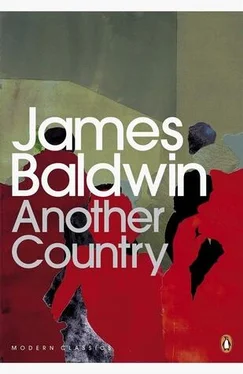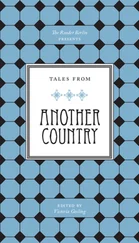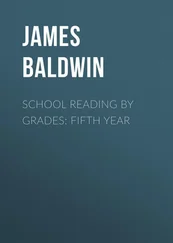“All right.”
“I can’t help it. I have the feeling they think I’m just being hysterical.”
“I’ll come with you. They won’t think I’m hysterical.”
Richard grinned. “Vivaldo’s never hysterical, we all know that.” Then he said, “I really don’t see the point of all this. Rufus is probably just sleeping it off somewhere.”
“Nobody’s seen him,” Ida cried, “for nearly six weeks! Until last night! I know my brother, he doesn’t do things like this. He always come by the house, no matter where he’d been, or what was happening, just so we wouldn’t worry. He used to bring money and things — but even when he was broke, he come anyway. Don’t tell me he’s just sleeping it off somewhere. Six weeks is a long time.” She subsided a little, subsided to a venomous murmur. “And you know what happened — between him and that damn crazy little cracker bitch he got hung up with.”
“All right,” Richard said, helplessly, after a considerable silence, “have it your own way.”
Cass said, “But there’s no need to go rushing off in the rain right away. Rufus knows Vivaldo is going to be here. He may come by. I was hoping you would all stay for supper.” She smiled at Ida. “Won’t you, please? I’m sure you’ll feel better. It may all be cleared up by this evening.”
Ida and Vivaldo stared at each other, having, it seemed, become allies in the course of the afternoon. “Well?” asked Vivaldo.
“I don’t know. I’m so tired and evil I don’t seem to be able to think straight.”
Richard looked as though he thoroughly agreed with this; and he said, “Look. You’ve been to the police. You’ve told everyone you could. You’ve checked the hospitals, and”—he looked at her questioningly—“the morgue”—and she nodded, not dropping her eyes. “Well. I don’t see any point in rushing out in this damn Sunday-afternoon rain, when you hardly even know where you’re going. And we all saw him last night. So we know he’s around. So why not relax for a couple of hours? Hell, in a couple of hours you may find out you haven’t got to go anywhere, he’ll turn up.”
“Really,” said Cass, “there’s a very good chance he’ll turn up here today.” Ida looked at Cass. Then Cass realized that something in Ida was enjoying this — the attention, the power she held for this moment. This made Cass angry, but then she thought: Good. It means that whatever’s coming, she’ll be able to get through it. Without quite knowing it, from the moment Ida stepped through the door, she was preparing herself for the worst.
“Well,” said Ida, looking at Vivaldo, “I asked Mama to call me here — just in case.”
“Well, then,” said Cass, “it seems to me it’s settled.” She looked at the clock. “The boys should be home in about another hour. I think what I’ll do is fix us all a fresh drink.”
Ida grinned. “That’s a very friendly idea.”
She was terribly attractive when she grinned. Her face, then, made one think of a mischievous street boy. And at the same time there glowed in her eyes a marvelously feminine mockery. Vivaldo kept watching her, a small smile playing around the corners of his mouth.
The snow which had been predicted for the day before Thanksgiving did not begin to fall until late in the evening — slow, halfhearted flakes, spinning and gleaming in the darkness, melting on the ground.
All day long a cold sun glared down on Manhattan, giving no heat.
Cass woke a little earlier than usual, and fed the children and sent them off to school. Richard ate his breakfast and retired into his study — he was not in a good mood. Cass cleaned the house, thinking of tomorrow’s dinner, and went out in the early afternoon to shop and to walk for a little while alone.
She was gone longer than she had intended, for she loved to walk around this city. She was chilled when at last she started home.
They lived just below Twenty-third Street, on the West Side, in a neighborhood that had lately acquired many Puerto Ricans. For this reason it was said that the neighborhood was declining; from what previous height it would have been hard to say. It seemed to Cass very much as it always had, run-down, and with a preponderance of very rough-looking people. As for the Puerto Ricans, she rather liked them. They did not impress her as being rough; they seemed, on the contrary, rather too gentle for their brutal environment. She liked the sound of their talk, soft and laughing, or else violently, clearly, brilliantly hostile; she liked the life in their eyes and the way they treated their children, as though all children were naturally the responsibility of all grownups. Even when the adolescents whistled after her, or said lewd things as she passed and laughed among themselves, she did not become resentful or afraid; she did not feel in it the tense New York hostility. They were not cursing something they longed for and feared, they were joking about something they longed for and loved.
Now, as she labored up the outside steps of the building, one of the Puerto Rican boys she had seen everywhere in the neighborhood opened the door for her with a small, half-smile. She smiled at him and thanked him as forthrightly as she could, and stepped into the elevator.
There was something in Richard’s face as he closed the door behind her, and in the loud silence of the apartment. She looked at him and started to ask about the children — but then she heard them in the living room. Richard followed her into the kitchen and she put down her packages. She looked into his face.
“What is it?” she asked. Then, after the instant in which she checked off all the things it wasn’t, “Rufus,” she said, suddenly, “you’ve got news about Rufus.”
“Yes.” She watched the way a small vein in his forehead fluttered. “He’s dead, Cass. They found his body floating in the river.”
She sat down at the kitchen table.
“When?”
“Sometime this morning.”
“How long — how long ago—?”
“A few days. They figured he must have jumped off the George Washington Bridge.”
“My God,” she said. Then: “Who—?”
“Vivaldo. He called. Just after you went out. Ida had called him.”
“My God,” she said, again, “it’s going to kill that poor girl.”
He paused. “Vivaldo sounded as though he’d just been kicked in the belly by a horse.”
“Where is he?”
“I tried to make him come here. But he was going uptown to the girl — Ida — I don’t know what good he can do.”
“Well. He was much closer to Rufus than we were.”
“Would you like a drink?”
“Yes,” she said, “I think I’d like a drink.” She sat staring at the table. “I wonder if there was anything — we — anyone could have done.”
“No,” he said, pouring a little whiskey in a glass and setting it before her, “there was nothing anyone could have done. It was too late. He wanted to die.”
She was silent, sipping the whiskey. She watched the way the sunlight fell on the table.
Richard put his hand on her shoulder. “Don’t take it too hard, Cass. After all—”
She remembered his face as it had been the last time she talked to him, the look in his eyes, and his smile when he asked Can I come to see you soon? How she wished, now, that she had stayed and talked to him a little longer. Perhaps — she sipped the whiskey, marveling that the children were so quiet. Tears filled her eyes and dropped slowly down her face, onto the table.
“It’s a dirty, rotten shame,” she said. “It’s a terrible, terrible, terrible thing.”
“He was heading that way,” said Richard, mildly, “nothing, no one, could have stopped him.”
Читать дальше












